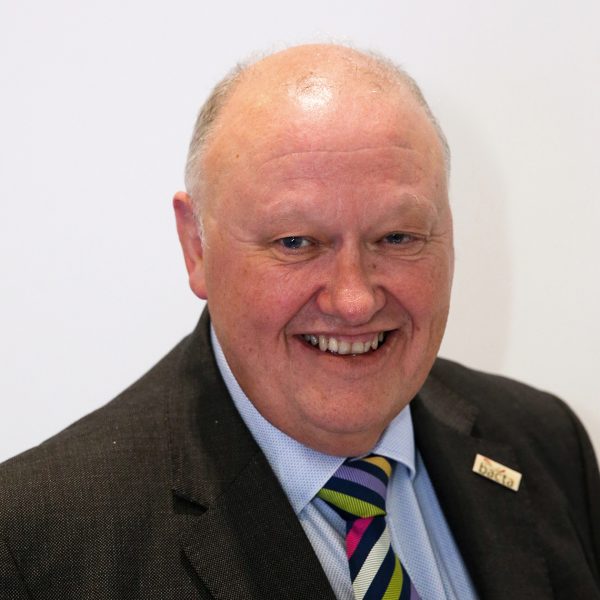Gambling Commission CEO Neil McArthur delivered a slightly sweet and sour speech at last week’s Bacta AGM. As a Chinese take-away it would have been a pretty tasty dish, and there was indeed something to savour for delegates in his sweet words on collaboration. But on B3s, the sour was a little bit punchy.
Gambling Commission CEO Neil McArthur is not an easy man to dislike. He delivered his speech at the Bacta AGM last week, his first to this sector as the regulatory head, like a compassionate veterinarian contemplating the prospect of whether to put down your favourite family pet of 20 years.
Gentle, calm, reassuring, but always with a needle filled with pentobarbital close at hand – just in case.
For the first time, and definitely in a long time, the Gambling Commission’s tone was engaging; its language embracing; its posturing inviting. Can the industry do business with this man? Certainly.
But will he need to revisit his message? Just a little.
McArthur came to the Bacta Convention, a humble guy, backed by weapons of mass destruction, and told the industry that he doesn’t want to use them, but you know he can.
And B3s, he warned, are his new concern. “I recognise that a lot of debate was about B2 stakes. I understand that. But that’s not the end of the story. The Commission has not been distracted by that.
“We recognise that B3 machines and the B3 category covers a range of different machines with different levels of protections. We said in our review that the evidence suggests B3 play carries a similar financial and time related risk to B2 roulette play.”
It wasn’t a declaration that would shock the convention hall, the industry had been put on notice of this direction some time ago. But hearing it directly from the GC chief was an important shift in attitude – the Commission was explaining rather than outright dictating.
The outcome will likely still be the same, but somehow it paid that little bit more respect to the industry.
McArthur wanted to detail his rationale. “Our evidence shows that actual losses and sessions during comparable play across B2s and B3s in different venues are very similar. We acknowledge the greater level of extreme losses across B2s, but that doesn’t detract from the general point that the pattern of loss and time spent are similar across B2 and B3.”
It’s not a view that found overwhelming support from the attentive Bacta delegates, but it’s one the Commission has felt empowered to pursue – not least because of the wave of public resentment towards FOBTs. And between the lines, one sensed that the genie was now out of the bottle.
McArthur spoke directly and honestly: “Bacta was very active regarding the changes needed to FOBTs, that was your choice. But with that choice comes consequences. The risk posed by B3 game machines are somewhat overlooked in all the debate about FOBT terminals. But they haven’t been overlooked by the Commission. You cannot afford to be complacent.”
And he didn’t want history to repeat itself.
“If you look at B2s, there was arguably a window earlier on when the industry could have taken action which would have meant that regulatory changes wouldn’t have been required to the extent that they have been imposed now. You [the industry] didn’t take it and we all saw the outcome.”
The Bacta members’ trading environment, the B3 domain, might face a similar crossroads, he argued. “On B3s, that same window is now open. This is a chance to take action, but be clear, the window will close if public concerns have not been addressed and the government finds itself likely to take action if similar concerns emerge around B3 play that were raised in B2 play.”
This was the sour note on an otherwise moderate, and almost amenable speech. And this particular point will undoubtedly be poured over by many in the industry for its seeming inconsistency. B3s are not B2s – the industry will argue – and any attempt to suggest or direct otherwise would clearly be false and misleading.
Of course, though, there will be plenty peddling that deceit in public debates. A concern that McArthur was quick to acknowledge very early on in his speech. “Gambling is not like any other [industry] – it’s a source of fun for most but one that can become addictive and harmful. Gambling is also one that brings people’s own values, beliefs and opinions to bear – some of which have been given more weight than hard evidence,” he told the delegates.
Is this a clear recognition that there are those whose individual morals and anti-gambling leanings are dominating the debate? The jury’s out on that, but McArthur’s understanding of this specific problem is a giant leap for industry-kind in comparison to his predecessor.
Whilst the Commission is not there to defend the industry, it does have a duty to regulate fairly and within the law. The B3 issue is a shuffle that will play out vigorously over the coming months. The question remains however: is the Gambling Commission asking the industry to take a plea bargain even though it proclaims its innocence and sufficient evidence to convict isn’t there?
And this is most likely where the public opinion reference has its sting; you don’t really want to end up a pariah like the FOBT, do you?
That is the risk the industry is being asked to weigh up.
But the work of the Gambling Commission is seemingly never done. Neil McArthur was able to spend much of his near 20 minutes at the podium talking collaboration, working together, sharing information – all the right noises, and all genuinely felt.
But then, it was primarily all on the Commission’s terms. If there was one weakness in the regulator’s positioning is that it does come from an intransigent yet hollow assumption: that every form of gambling can lead to gambling related harm.
Which is kind of obvious, most people would say. Casual sex can give you an STD, beer can make you drunk, chocolate can make you fat. But it doesn’t necessarily make you a prostitute; an alcoholic or Willy Wonka.
McArthur clearly still has a little way to go to drag his organisation away from that evangelical line on the gambling compass.
But it would be extremely unfair to position Neil McArthur as a crusader for regulation. There was much for the industry to work with in McArthur’s park. And whilst most of the concepts suggested were back of the net for the Gambling Commission’s objectives, they were definitely beneficial to the operator and industry as well.
“I think there are many opportunities in this sector,” he told the audience. “We can make good progress in making gambling a safer place if we work together.”
And he offered up many areas of collaboration. In terms of customer interaction, he argued that the industry “has the opportunity to really lead the way in this interaction by working with us to test and evaluate this interaction.”
And taking control over identifying harm was also positioned as an opportunity for the industry. “You have the chance to combine your collective buying power to tell your suppliers to make sure they’re giving you machines that enable you to meet your responsibilities and support you to raise standards, provide a forum for best practice and learn lessons.”
Good luck there one might say; the manufacturing sector is pleading with the regulator to loosen the noose around its neck and at least let it dangle with a view of the 21st century from the technological gallow.
And that’s not all McArthur and the Commission wants to do together with the industry. “We want to involve you in other initiatives such as workshops and solutions to a variety of challenges across the industry. We will work with you to get this right, share our research about interacting with consumers.”
Collaboration was definitely the order of the day – B3 aside, albeit a huge aside – as the CG chief explained. “I think we are moving in the right direction, we have taken steps that have been really important. Initiatives like the SR forum organised by Bacta are very welcome and with the challenges, we can do more. More collaboration, more evaluation.
“You have a real opportunity to rise to this challenge; to raise standards, to strengthen player protection and intervention and help reduce gambling related harm.”
And all this with the Gambling Commission by its side.
McArthur pledged his support for the industry and offered the Commission’s assistance along the way. “I and my colleagues stand ready to work with you all, to help reduce harm and raise standards across all parts of the gambling industry. Lets end the debate, and everyone accept that gambling related harm is an issue for FECs, AGCs and all parts of the gambling industry, and let’s tackle it together.”
A rallying call from a regulator that previously only knew how to scream at the industry. Neil McArthur delivered a significant shift in tone from the Gambling Commission; it’s still pounding the industry – obviously, it is after all the regulator – but it’s reference point is different. The industry is no longer the enemy, and it’s definitely not a friend. But it’s becoming a partner and while that doesn’t change the outcome, it can certainly help to shape it.
This article was originally published on www.coinslot.co.uk




